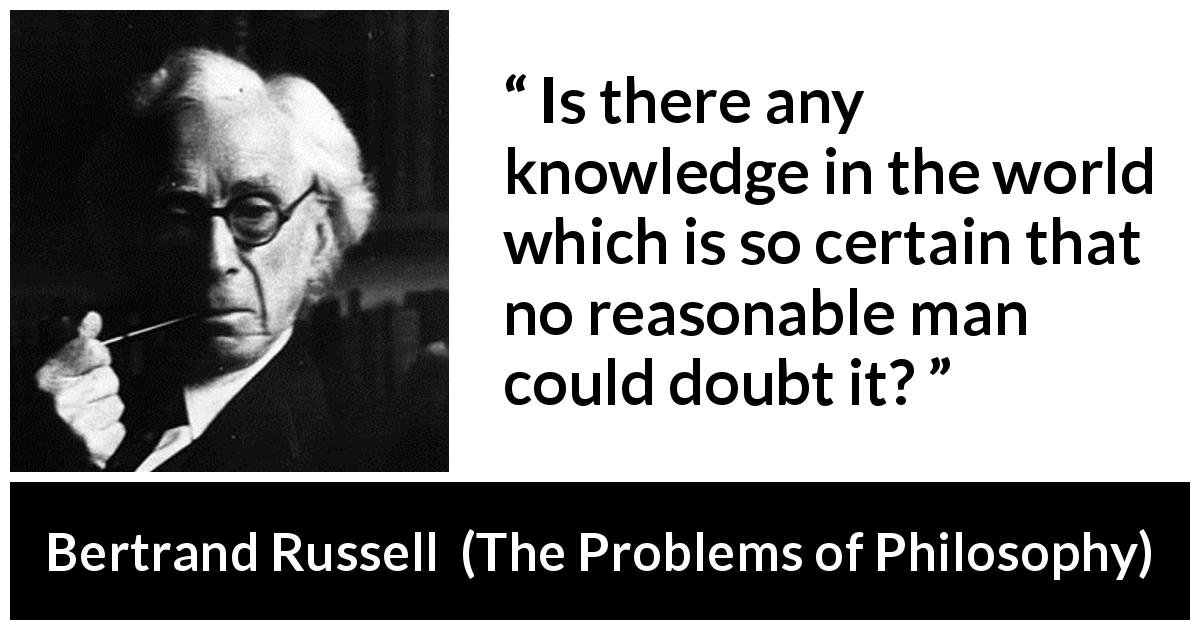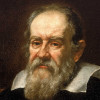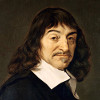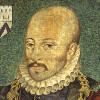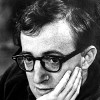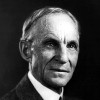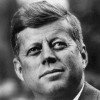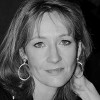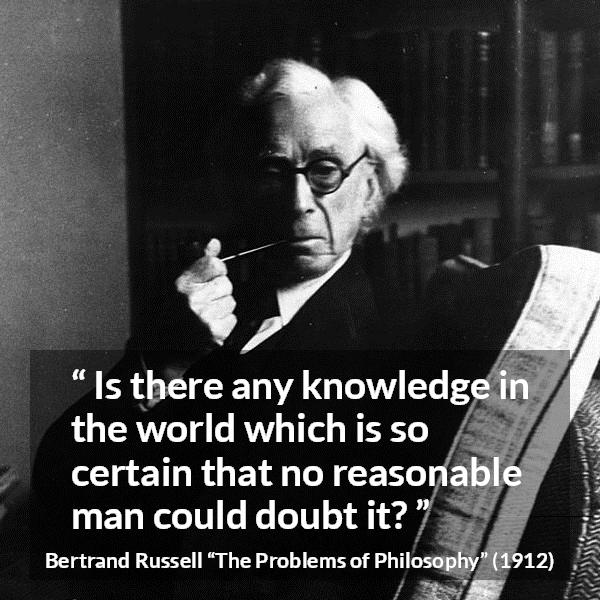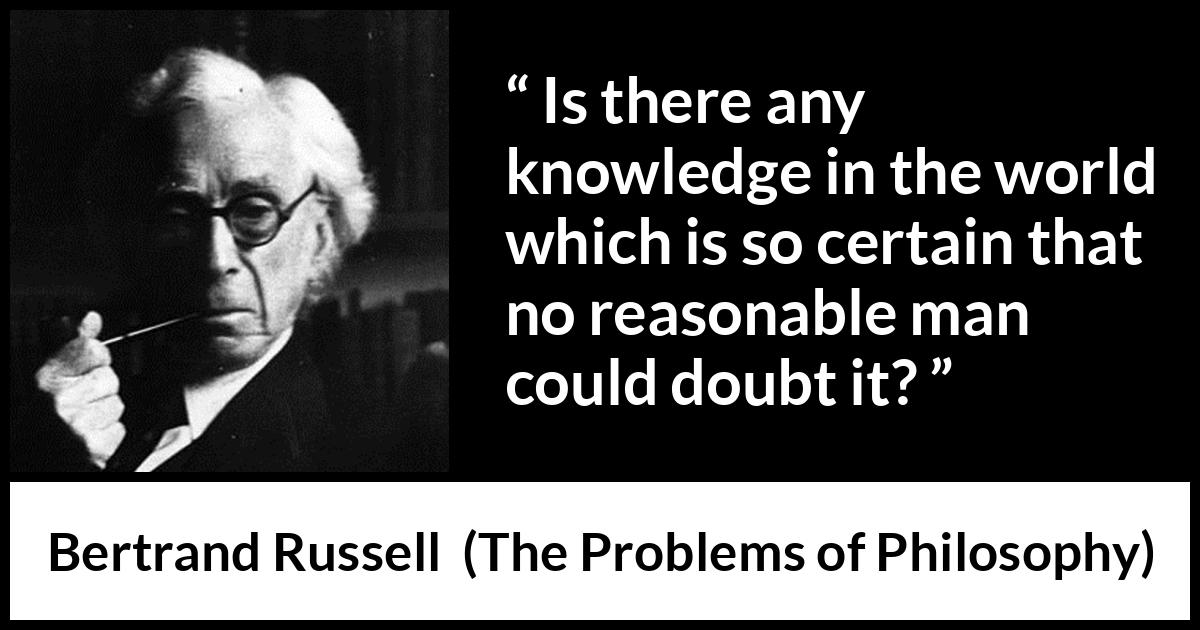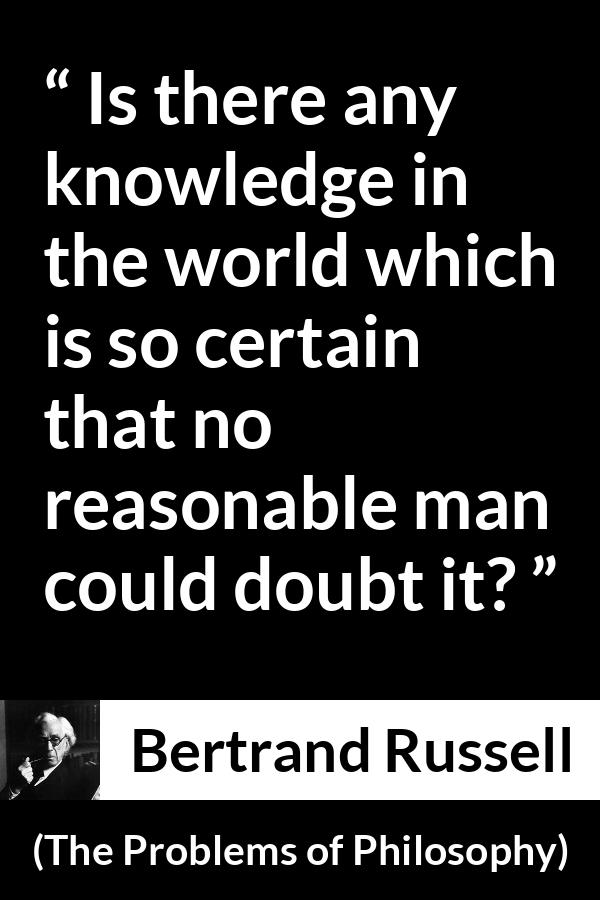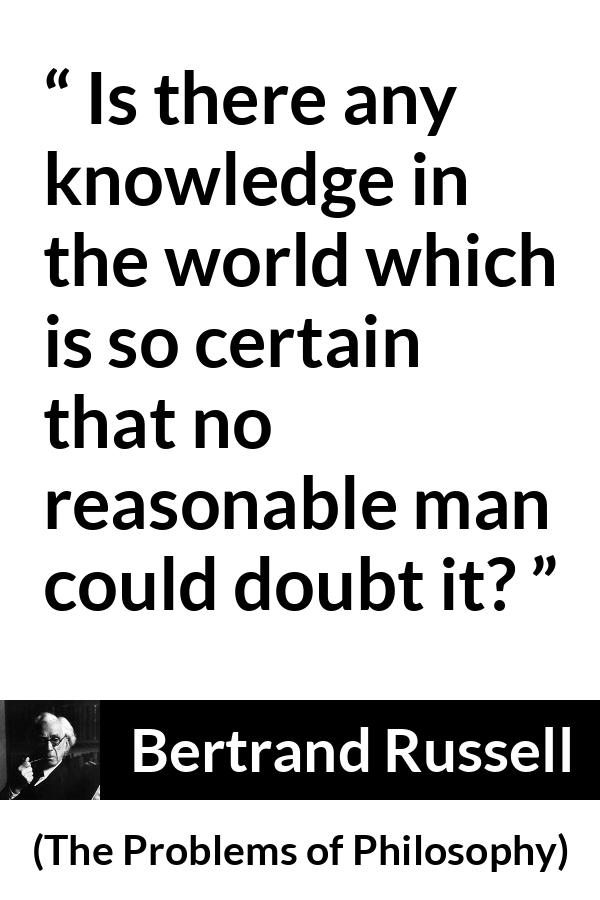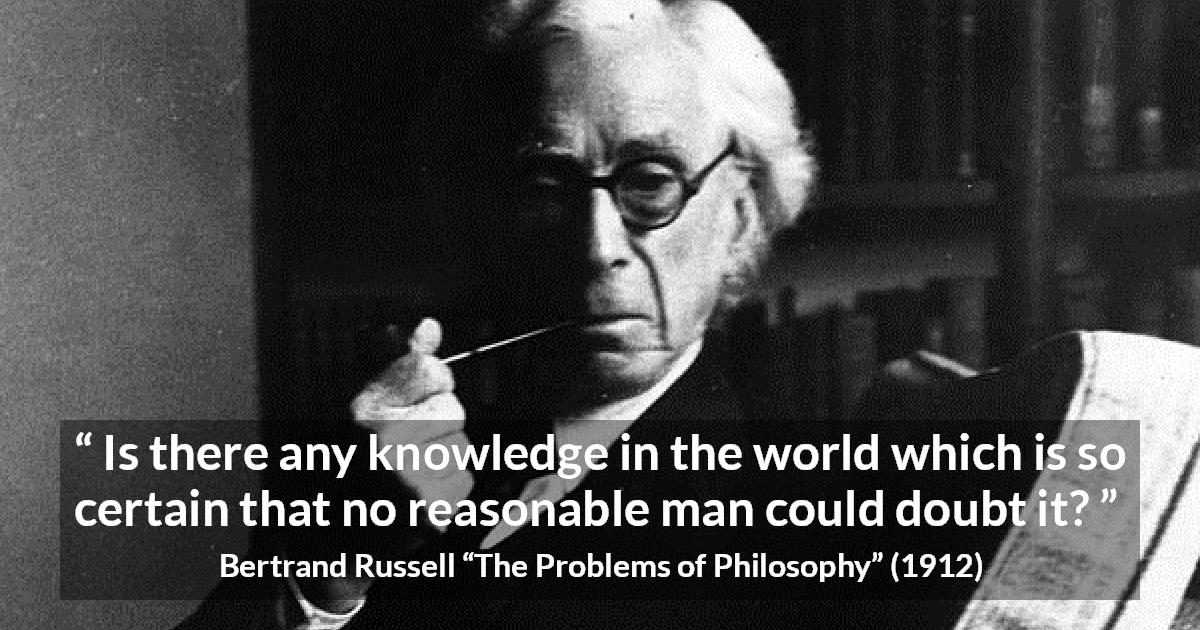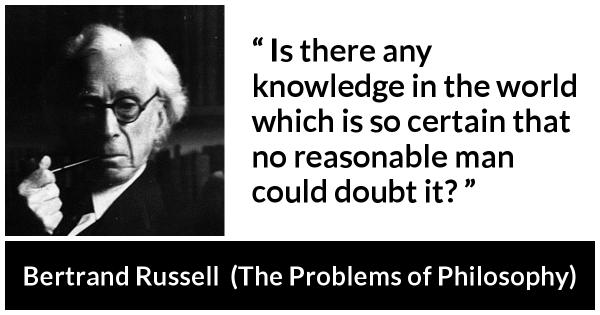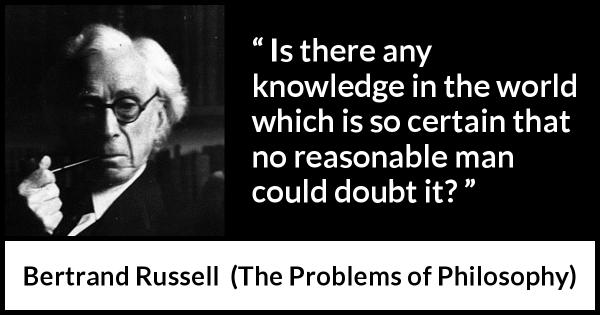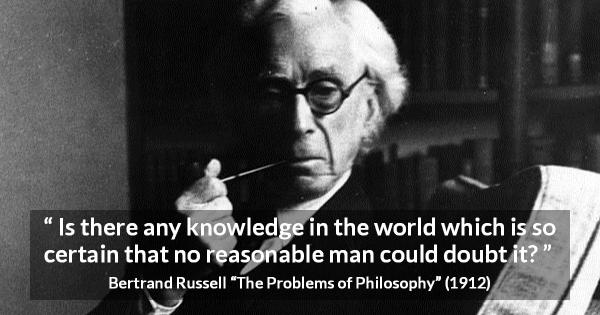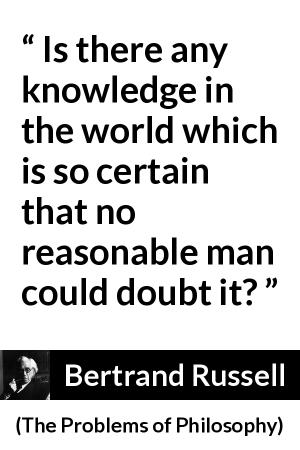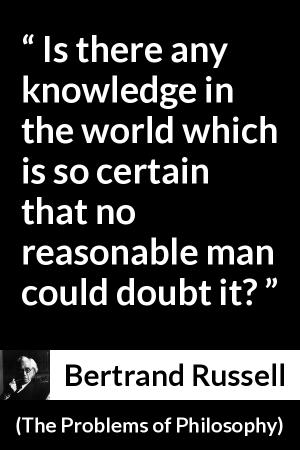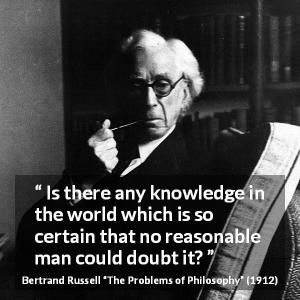“ Is there any knowledge in the world which is so certain that no reasonable man could doubt it? ”
Bertrand Russell, The Problems of Philosophy (1912). copy citation
| Author | Bertrand Russell |
|---|---|
| Source | The Problems of Philosophy |
| Topic | doubt reason knowledge |
| Date | 1912 |
| Language | English |
| Reference | |
| Note | |
| Weblink | http://www.gutenberg.org/files/5827/5827-h/5827-h.htm |
Context
“I have derived valuable assistance from unpublished writings of G. E. Moore and J. M. Keynes: from the former, as regards the relations of sense-data to physical objects, and from the latter as regards probability and induction. I have also profited greatly by the criticisms and suggestions of Professor Gilbert Murray.
1912 CHAPTER I. APPEARANCE AND REALITY Is there any knowledge in the world which is so certain that no reasonable man could doubt it? This question, which at first sight might not seem difficult, is really one of the most difficult that can be asked. When we have realized the obstacles in the way of a straightforward and confident answer, we shall be well launched on the study of philosophy—for philosophy is merely the attempt to answer such ultimate questions, not carelessly and dogmatically, as we do in ordinary life and even in the sciences, but critically, after exploring all that makes such questions puzzling, and after realizing all the vagueness and confusion that underlie our ordinary ideas.” source
1912 CHAPTER I. APPEARANCE AND REALITY Is there any knowledge in the world which is so certain that no reasonable man could doubt it? This question, which at first sight might not seem difficult, is really one of the most difficult that can be asked. When we have realized the obstacles in the way of a straightforward and confident answer, we shall be well launched on the study of philosophy—for philosophy is merely the attempt to answer such ultimate questions, not carelessly and dogmatically, as we do in ordinary life and even in the sciences, but critically, after exploring all that makes such questions puzzling, and after realizing all the vagueness and confusion that underlie our ordinary ideas.” source
